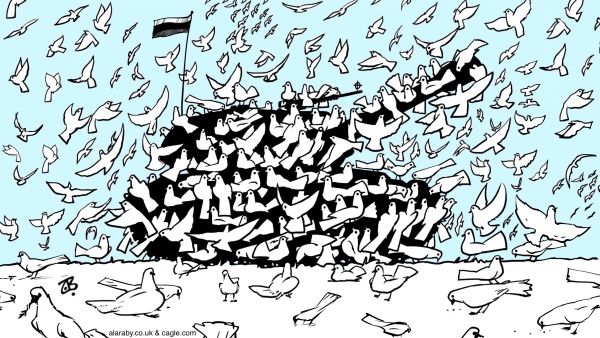Negotiation, not Escalation
Protracted War or Nuclear War?

Something unexpected happened to me at Santa Barbara’s recent peace rally for Ukraine. While I was outside the courthouse, distributing flyers listing humanitarian relief organizations in need of donations — for oxygen, for medicine, for food — to rush to Ukrainains seeking safety in bomb shelters or subway stations, I encountered three UCSB students: one from Kyiv, Ukraine; one from Minsk, Belarus; one from Moscow, Russia.
In a testament to the power of friendship to bridge a painful divide, the three students had come to the rally together to support a ceasefire and diplomatic solutions, not more weapons or blanket sanctions or a no-fly zone that might usher in World War III, but a negotiated settlement to end the horror once and for all.
Russia says it will stop the bombing and commit to a ceasefire if Ukraine declares it will never join NATO and recognizes separtist regions in Eastern Ukraine as independent states. Surrounded by a hostile military alliance, Russia seeks assurances that NATO will not station nuclear weapons on its border. Though I condemn Russia’s brutal invasion in the strongest possible terms, I view these demands as reasonable — particularly since the the Minsk II agreement, signed by Ukraine and Russia in 2015, established autonomy for certain areas of Eastern Ukraine.
Of course, it is bad precedent to bow to the demands of an invader bombing hospitals and schools, but worse than that is the prospect of a protracted war that exponentially multiplies the misery and suffering — or a nuclear war between superpowers that leaves millions dead and imposes a dark subzero winter on the world.
Perhaps Ukraine will counter Russia’s proposal with a demand for reparations to pay for the destruction and havoc wrought by its neighbor — I hope so, much as I hope the U.S. will keep the promise it once made not to expand NATO further into Eastern Europe.



